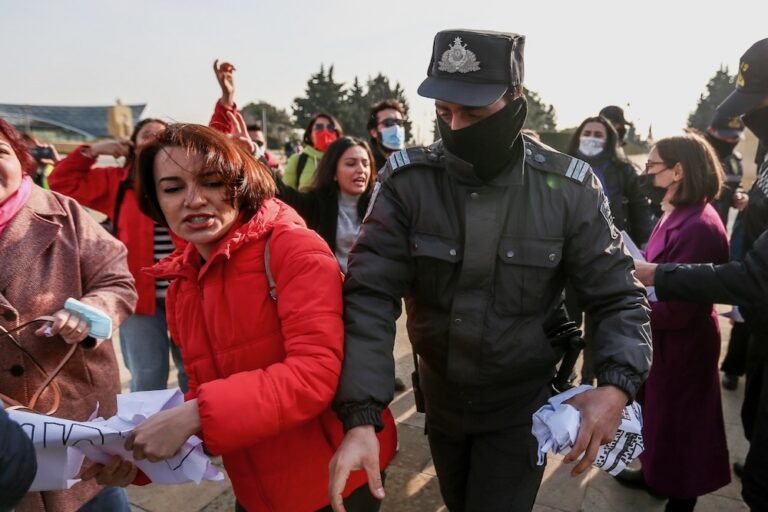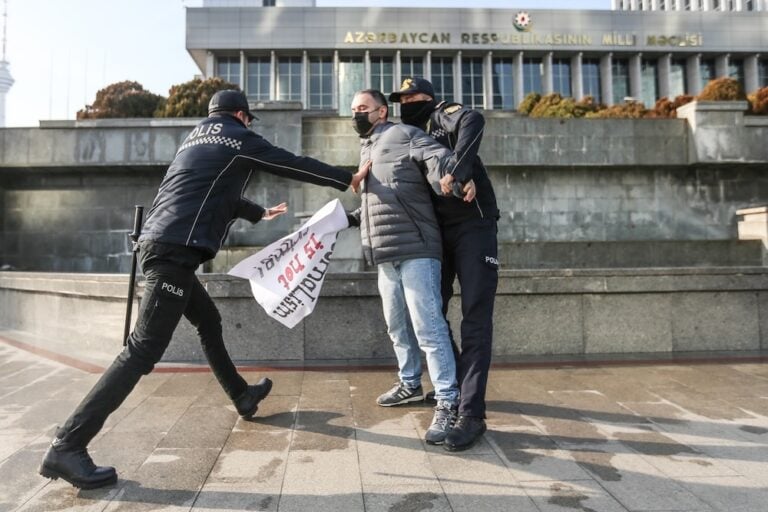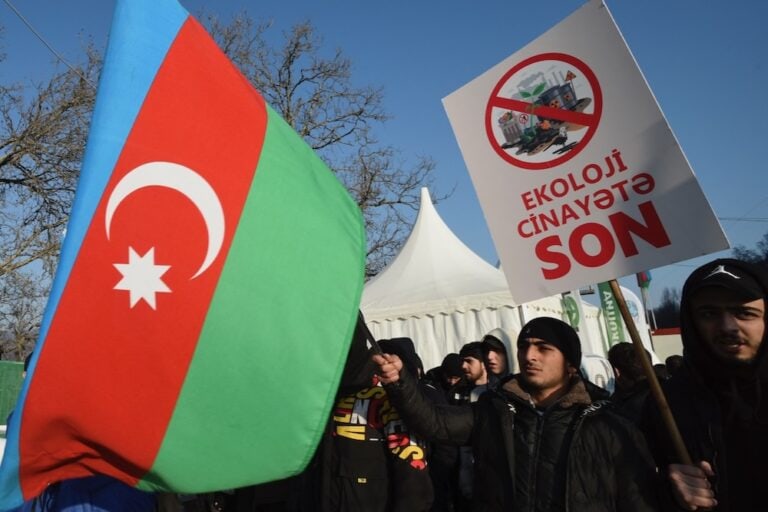Yeni Musavat was ordered to pay approximately US$64,000 in damages to Gilan Gabala Cannery LLC over a story published several times in the newspaper between 2009 and 2011.
UPDATE: Baku appeals court upholds fine against Yeni Musavat newspaper (IRFS, 15 November 2012)
(IRFS/IFEX) – The Institute for Reporters’ Freedom and Safety (IRFS) strongly condemns a decision issued by the Baku Administrative Economic Court #2 on 31 July 2012 in a defamation case initiated by Gilan Gabala Cannery LLC against the Yeni Musavat newspaper. The newspaper was ordered to pay damages of 50,000 AZN (approx. US$64,000) to the company. IRFS considers this decision to constitute suppression of critical media and reiterates that it is profoundly concerned over the abuse of criminal defamation laws in Azerbaijan.
Gilan Gabala Cannery LLC originally filed the lawsuit against Yeni Musavat, requesting one million AZN (approx. US$1.27 million) in compensation over an article entitled “Juice called JALE is very dangerous”, which was published in the newspaper several times between 2009 and 2011.
IRFS believes that Gilan Gabala Cannery LLC director Kamaladdin Heydarov, who is also the minister for emergency situations, has been shown to be intolerant of any criticism regarding his enterprise printed in newspapers.
IRFS notes that if the business reputation of a company is actually damaged by a newspaper they may demand that the newspaper apologize and print a retraction. However officials are not often satisfied with that recourse and instead demand huge compensations in order to punish the newspapers.
IRFS views the case against Yeni Musavat as part of a broader practice and is deeply concerned about the use of defamation lawsuits to intimidate and silence criticism, opposition or dissent, resulting in a chilling effect on the free flow of information in the country.
IRFS strongly believes that all criminal defamation laws violate freedom of expression guarantees. IRFS also notes that unduly harsh sanctions, such as prison sentences or fines, violate the right to freedom of expression, particularly when the fines are extraordinarily high, as in the Yeni Musavat newspaper case.
IRFS calls upon the Azerbaijani government and officials to be tolerant to criticisms by the media and to refrain from suppressing freedom of expression by exerting strong financial pressure. IRFS also calls on the president of Azerbaijan to use his powers to stop attacks on press freedom and urges international organizations to demand that the Azerbaijani government put an end to pressure on the press and fulfill its international obligations.


